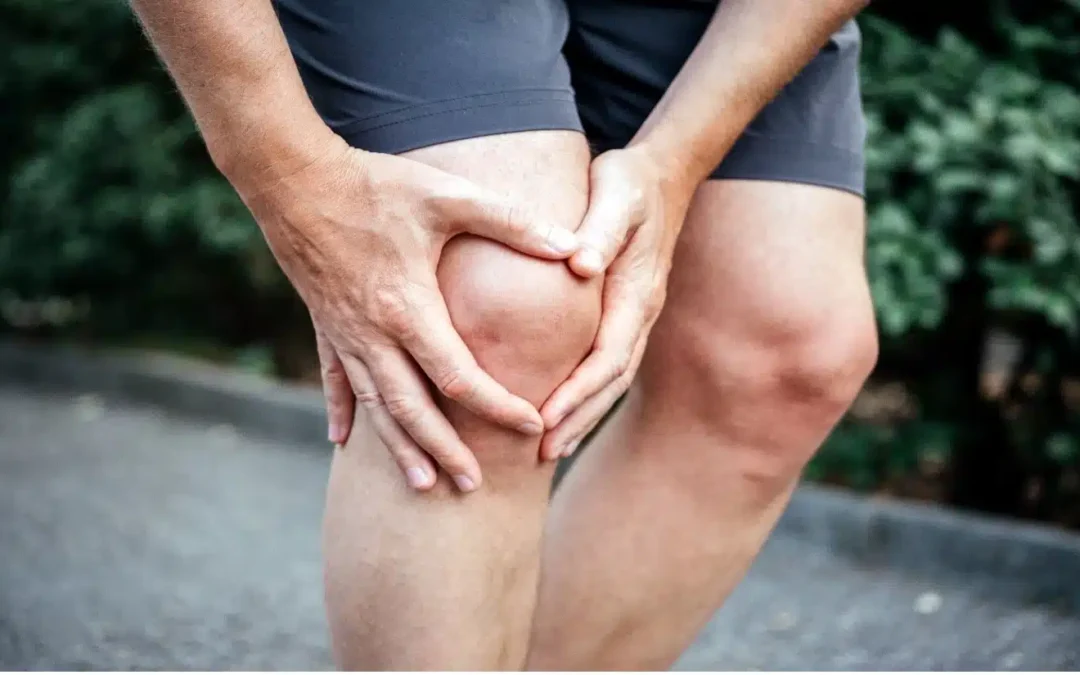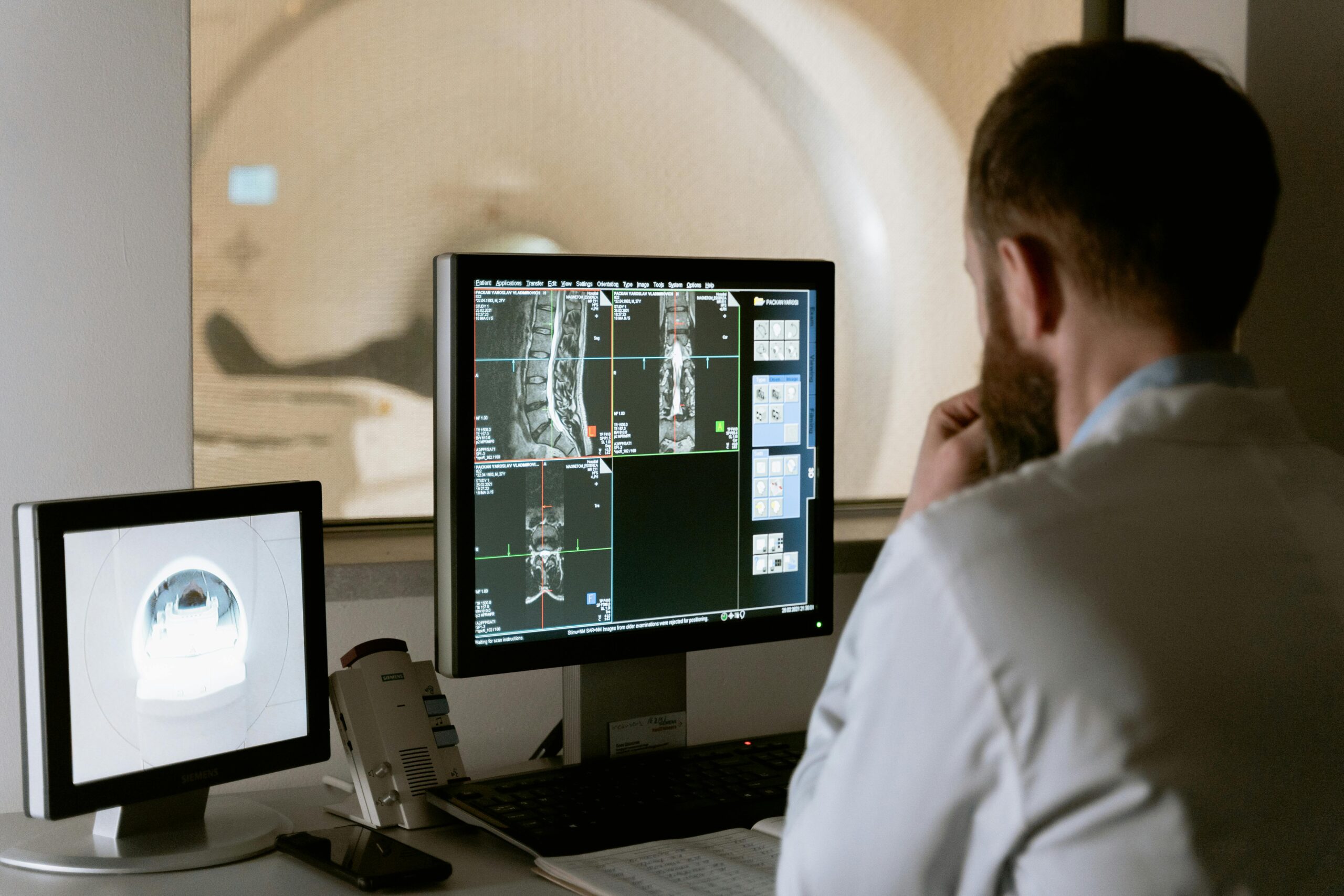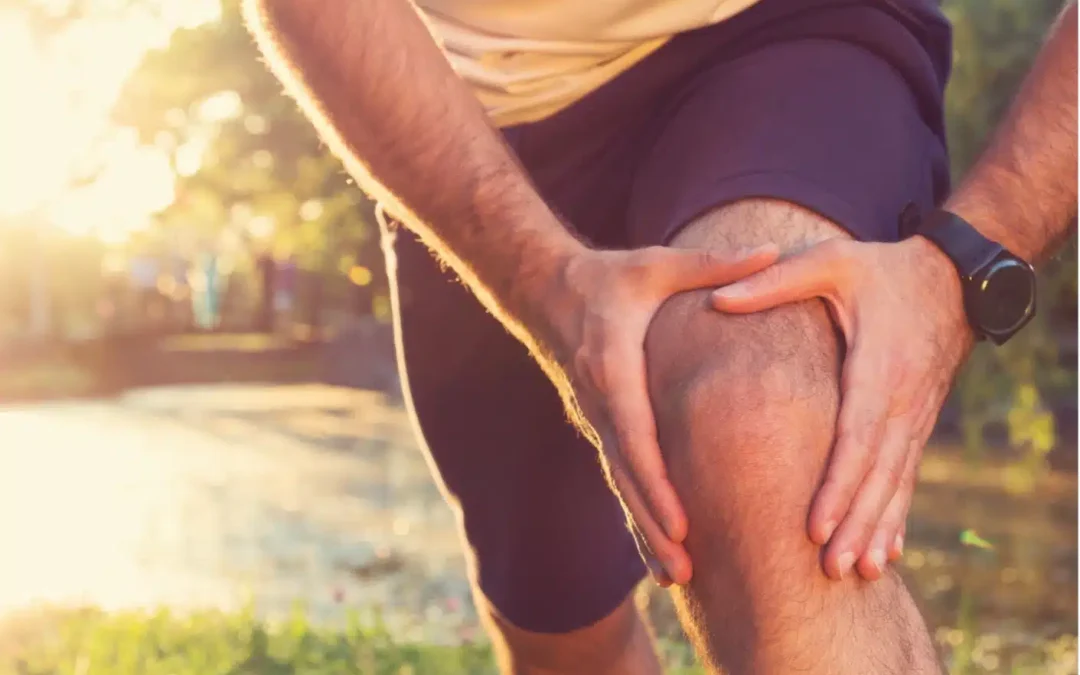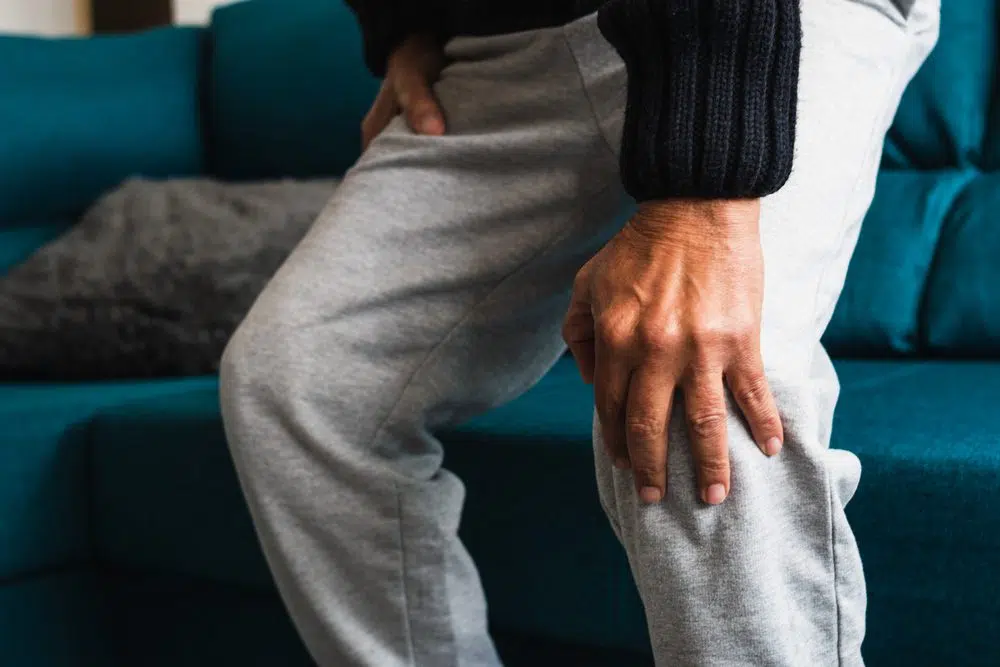
BLOG
What Causes Round Ligament Pain?
Pregnancy is full of surprises — some happy and some uncomfortable. Round ligament pain can fall into the latter category for some women. Often felt as a brief stabbing sensation near the hips or groin area, round ligament pain is a common symptom of an expanding uterus and a growing baby. Let’s talk about what causes round ligament pain and what you can do to treat soreness caused by that expanding belly.

The Anatomy of Round Ligaments
The round ligaments hold the uterus in place. They resemble two cords on either side of the uterus and connect it to the pelvis. During pregnancy, the ligaments thicken and stretch to support the uterus as it grows to accommodate your developing baby. These changes to the ligaments can sometimes lead to temporary discomfort, particularly if you cough, sneeze, or change positions quickly.
The good news is round ligament pain is not a serious concern for you or your baby. However, the discomfort can persist for much of your pregnancy, affecting your quality of life during those precious nine months. For some, round ligament pain can occur outside of pregnancy, prompting some to seek relief from the soreness that often strikes without warning.
Round Ligament Pain Outside of Pregnancy
Pregnancy may be the most frequent time to experience tendon and ligament pain, but it’s not the only time. So, what causes round ligament pain outside of pregnancy?
Your round ligaments may be more prone to stretching after pregnancy, which can lead to abdominal soreness even after your baby is born. Hormonal changes can also impact the ligaments of the body, including those round ligaments that cause abdominal discomfort.
An injury to your abdominal area can also affect your round ligaments. Even strain on these tendons, through exercise or other activity, may result in some soreness in the lower abdomen. No matter what causes round ligament pain, relief may be available.
Round Ligament Pain and Endometriosis
Endometriosis is a condition that occurs when the endometrial tissue, usually found inside the uterus, starts growing outside it. It is a painful condition that is also a leading cause of infertility among women.
In some cases, endometriosis can grow on the round ligaments, which can lead to soreness similar to what you might experience during pregnancy-related round ligament pain. It is always best to seek the guidance of a provider when you experience discomfort that doesn’t improve on its own, particularly when it occurs outside of pregnancy.
When Does Round Ligament Pain Start?
You can experience round ligament pain at any time during pregnancy, thanks to your ever-shifting hormones and the natural changes that occur in your body. The most common time to begin feeling soreness is during the second trimester. That’s when the uterus and surrounding ligaments start to undergo real changes to make room for your growing baby
Round Ligament Pain Location During Pregnancy
What does ligament pain feel like? It varies, ranging from a sharp, stabbing pain to a dull ache or crampy feeling. Since the ligaments are located on either side of the uterus, you may notice that the discomfort starts on the side of the lower abdomen and sometimes radiates down into the groin area. It often occurs when you change positions, cough, laugh, or sneeze.
Round Ligament Pain in the First Trimester
It is very unusual to experience round ligament soreness in the first trimester since your uterus doesn’t do much expanding during the first few months of pregnancy. However, you might start to notice some discomfort by the 12th week as your body prepares to support that growing bundle of joy.
Round Ligament Pain in the Third Trimester
Many women continue to feel soreness in their abdomen throughout the third trimester, as the uterus only gets bigger. Know that once your baby arrives, you will likely say goodbye to round ligament pain along with other uncomfortable symptoms that can make their brief appearance during those nine months.
If you are concerned about lingering soreness after pregnancy, ask your medical provider how you can strengthen tendons, ligaments, and muscles to relieve some of those symptoms. Keep in mind that ligaments and tendons can take a long time to heal, so sometimes patience (under the guidance of your medical practitioner) and ongoing treatment is the best path to relief.
Constant Round Ligament Pain
Maybe you have researched “round ligament pain,” and everything you see suggests this discomfort should be brief and temporary. What if your soreness is ongoing?
How Long Does Round Ligament Pain Last?
Most people find round ligament pain to be fleeting, consisting of a brief stab or ache that subsides within seconds or minutes. However, others may experience discomfort that lasts hours or even longer. It is always a good idea to check with your provider for any ongoing discomfort.
Round Ligament Pain When Walking
In some cases, soreness from the round ligaments occurs with activity like walking. If your discomfort gets worse when you are active, your body may be telling you it’s time for a rest. Sitting down with your feet elevated may relieve the pain. If you need to be on your feet for extended periods, a belly band worn beneath your bump may provide the additional support you need to relieve the discomfort.
Constant Round Ligament Pain in the Second Trimester
If you are going to experience longer-lasting round ligament pain, the second trimester is the most likely time. The second trimester is when all that expansion around the abdomen really begins, and your body is in full preparation mode. While some discomfort is common at this stage, contact your healthcare provider if you experience any of the following symptoms:
Severe pain or cramping
Lower back pain, particularly if the discomfort is new
Increased pressure in the lower abdomen into the pelvic area
Bleeding or changes in vaginal discharge
Fever, nausea, or vomiting
How To Alleviate Round Ligament Pain
If you are experiencing soreness due to your round ligaments, there are things you can do to improve your symptoms.
- Spend some time each day with your feet up to rest your body and take some pressure off your abdomen and those ligaments. This step is good for you throughout pregnancy, regardless of whether you are dealing with round ligament pain.
- Use a belly band for additional support when you are up and around throughout the day. These bands support the lower abdomen and the ligaments without putting extra pressure on your baby bump.
- Slow down your movements since sudden changes often bring on discomfort. When you feel a sneeze or cough coming on, try bending and flexing your hips first to reduce the strain on the ligaments.
- Change positions to find a more comfortable way of sleeping at night. Try lying on your side with a pillow under your abdomen and another pillow between your legs. Some women swear by this sleep position during pregnancy.
- Apply a warm (not hot) compress to the abdomen to relax the abdominal muscles and ligaments. A warm bath might also do the trick and can be a great way to de-stress after a long day.
- Avoid putting additional strain on the ligaments with heavy lifting or long periods on your feet. If your workouts bother you, try slowing them down until you are more comfortable. You can always try ramping them up slowly again to find the optimal workout level during your pregnancy.
If you don’t find relief with home care, QC Kinetix offers non-surgical therapies that use natural biologics to help relieve soreness associated with round ligaments. One of our providers would be happy to meet with you and share information about the various treatments we offer that do not involve surgery or potentially harmful medications.
FAQ
How do you relieve round ligament pain?
You can often relieve round ligament pain with gentle activities like swimming. This type of exercise alleviates pressure on the uterus while encouraging the muscles and ligaments to relax. You can also consult with a healthcare provider about your options. For example, QC Kinetix offers regenerative medicine options to treat soreness related to the round ligaments.
When should I be concerned about round ligament pain?
Round ligament pain that doesn’t go away after a few minutes or abdominal discomfort that is accompanied by symptoms like contractions, severe pain, bleeding, or changes in discharge should be evaluated by a healthcare professional. QC Kinetix offers consultations for people seeking alternative treatments for abdominal soreness.
Is it normal to have round ligament pain all day?
It’s not unusual to experience brief spasms throughout the second and third trimesters due to changes to the round ligaments. You may also have some prolonged discomfort during that time, particularly when you increase or prolong your activity level. However, you should always check with your healthcare provider if your symptoms change or start causing you concern.
Learn How to Relieve Round Ligament Pain
Whether you are experiencing round ligament pain during pregnancy or for other reasons, relief is possible. QC Kinetix uses regenerative medicine to treat abdominal soreness due to stretched round ligaments. Using natural biologics, we support the body’s natural ability to restore itself — without surgery or pain medications.
You don’t have to suffer with the aches and pains caused by abdominal ligaments. If you are ready to improve your quality of life, schedule a free consultation with QC Kinetix. We will examine your medical history, discuss your specific symptoms, and customize treatment to your precise needs. To learn more about our treatment options, contact us online today.
Joint & Bone Health Quickstart Program
QC Kinetix Joint & Bone Health supplements help your body to repair and renew injured joint tissues, including cartilage, ligaments, and tendons, while reducing inflammation of the bursae. Unlike steroids or pharmaceuticals, our supplements for joints work with your body to promote healing.
Supplements can boost your overall joint health as part of a general fitness program. However, they are particularly valuable for treating damaged or inflamed and painful joints. The Arthritis Foundation finds that joint health supplements show promise for relieving pain, stiffness, and other symptoms of arthritis.

QC Kinetix
Get Started with QC Kinetix
*Fill out the form below, and an expert will reach out to you shortly. All fields must be completed.
*Please allow 30-60 minutes of allotted time to meet with a specialist to determine if you are a candidate for our services. Exams are included and are complimentary.


 1-800-490-4QCK
1-800-490-4QCK

